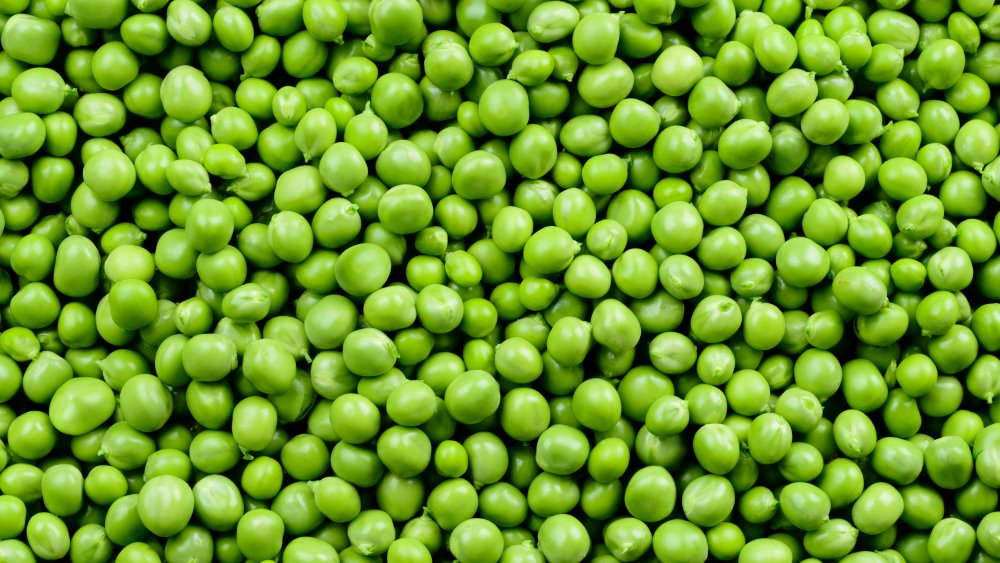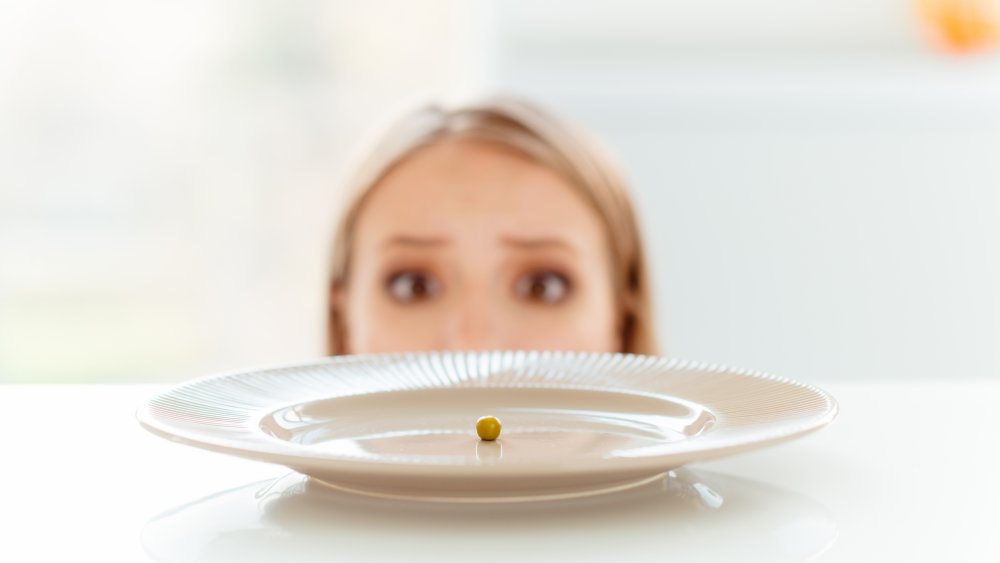Why You Should Think Twice Before Eating Peas
It almost seems like a parental imperative to get reluctant rugrats to eat peas at the dinner table. That idea is so pervasive that there's literally a children's book about that very scenario titled Eat Your Peas. In this tale of an unstoppable mom meeting an immovable daughter, a girl named Daisy almost drives her mother crazy with her stubborn refusal to eat the green orbs in front of her. The mother adopts every desperate measure under the sun, short of adopting a new daughter who actually likes peas.
The mom tries to bribe Daisy with ice cream, bikes, and 100 puddings. She offers to let her daughter drop out of school and stop bathing and going to bed. She even promises to buy 92 chocolate factories, a zoo, the sun, and the moon. And that's not an exhaustive list. Daisy emerges victorious after making an offer her mother can't accept: "I'll eat my peas if you eat your Brussels [sprouts]." The thought almost reduces her mom to tears. So they eat pudding together like peas in a pod. But all that haggling and grief could have ended much sooner if Daisy and her mom had known about the possible drawbacks of eating peas.
The pros and cons of pea consumption
Let's preface this by acknowledging the obvious: Peas have a lot of good things going for them. Are they as delicious as pudding? No, but that's not what they're good for. Healthline reports that peas are "high in fiber and protein" and provide vitamins A, C, and K, among other nutrients. However, the lectins present in the vegetable can turn you into a gassy Gus. Plus, they contain phytic acid, which might hinder the absorption of iron, calcium, magnesium, and zinc. But there's a bitter side to sweet peas.
Roughly 70 percent of a pea's calories come from carbs, and those starch balls can lead to weight gain if you regularly eat heaps of them (via SF Gate). As the less nutty cousin of Mr. Peanut, a pea could send your health over the edge of a cliff if you have a legume allergy. Per a 2015 review in the journal Allergy, Asthma, and Clinical Immunology, a study of 54 Mediterranean children who suffered legume allergies found that half had pea allergies. A series of case studies demonstrated that someone can have an allergy to cooked peas but not raw ones. In that case, you might be better off with pudding.

